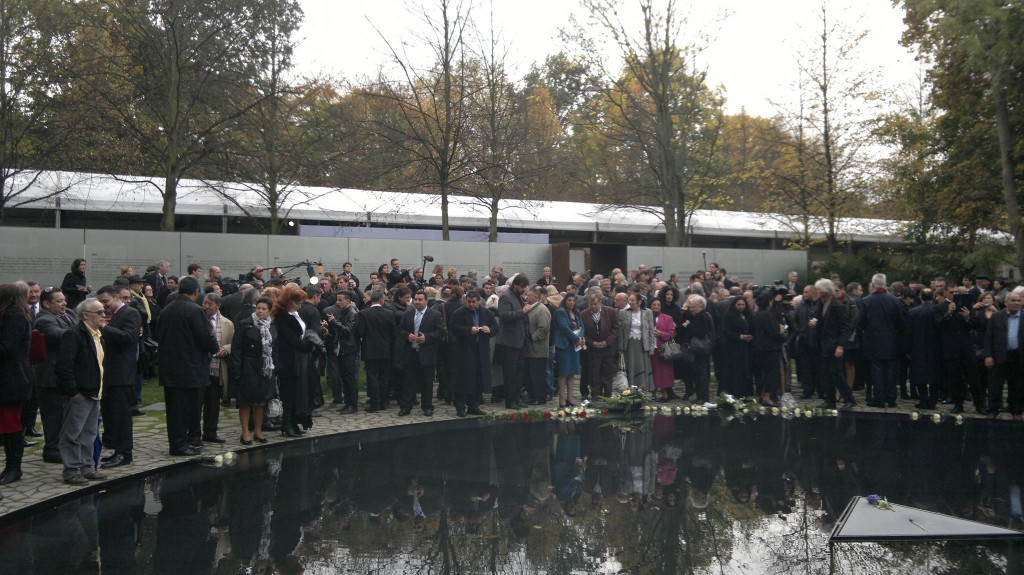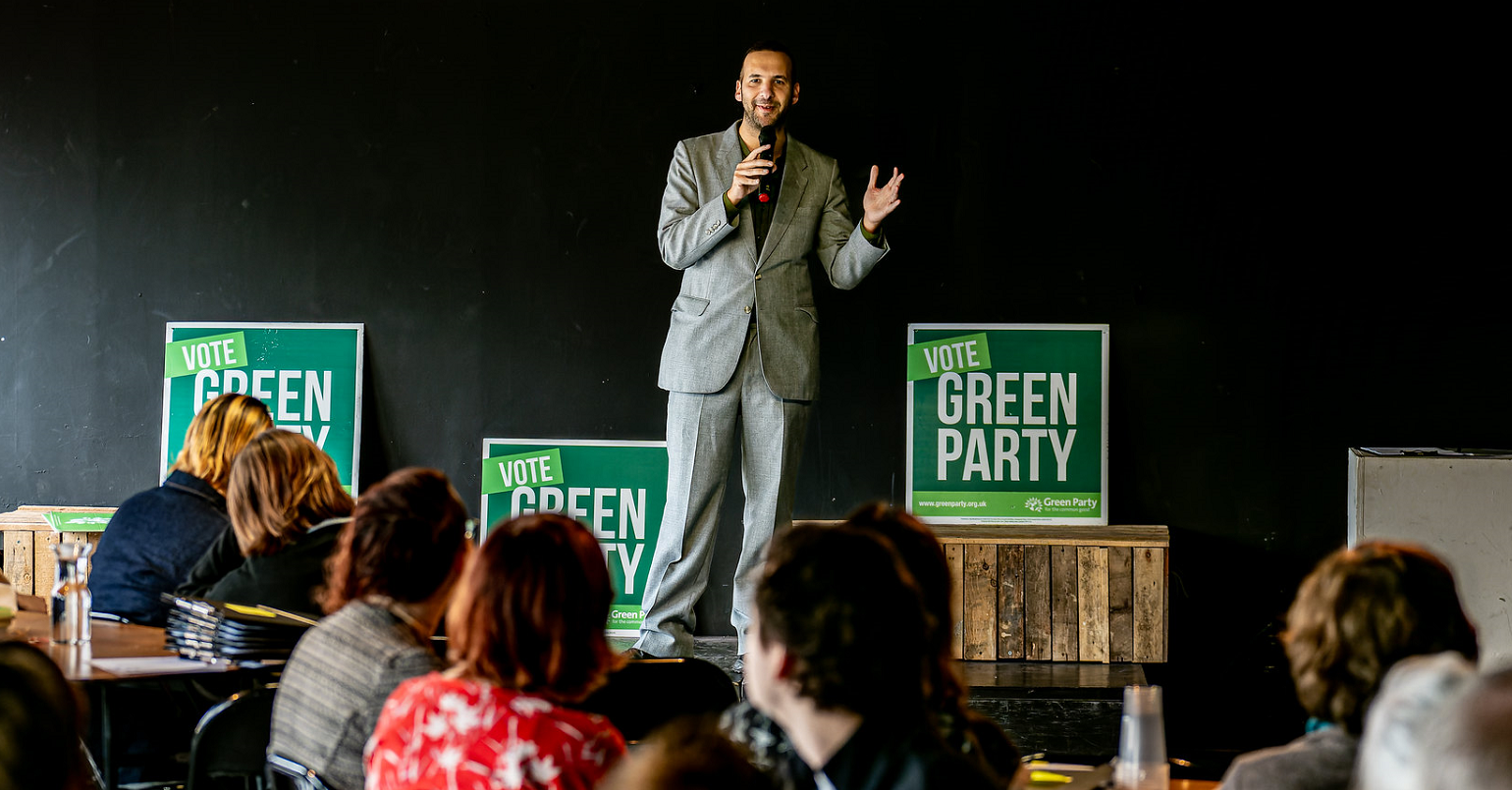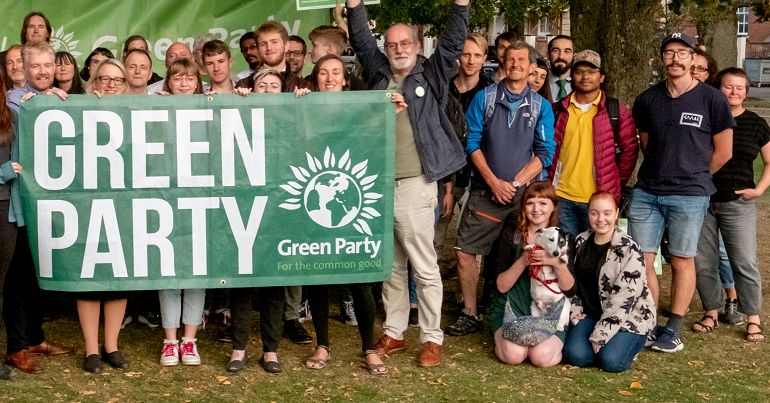Our sin is the colour of our skin

Collective Guilt
‘Collective guilt, or guilt by association, is the controversial collectivist idea that groups of humans can bear guilt above and beyond the guilt of individual members, and hence an individual holds responsibility for what other members of their group have done, even if they themselves didn’t do this.’ (Wikipedia)
After the Second World War, collective guilt was the principle that saw all Hungarians and Germans condemned for the actions of others like them. People were exiled from their countries on the basis of this principle and were the subject of much misery and loss of wealth. The basic problem with collective guilt is that it identifies a group of people according to one characteristic and ascribes guilt based on that. For example, in the 1940s many Germans committed war crimes. Based on this, Germans were deported en masse from a number of European countries, simply because of their nationality, and not based on any real or presumed crimes they had committed individually.
More recently, Pope Francis’ advice to the Roma didn’t just reinforce this kind of stereotype, but also legalised and sanctified racist views against my people. Unfortunately in this case Pope Francis didn’t just fall into the trap of collective guilt, but seems to believe it himself. Quoting from media reports distributed recently across the world:
Pope Francis exhorted the Roma, Sinti and other itinerant peoples to become protagonists of fraternity and sharing in our cities in which there is so much individualism.
“You can do this if you are good Christians, avoiding all that is not worthy of this name: lies, frauds, swindles, altercations” he said.
And the Pope held up the example of the Blessed Zeffirino Giménez Malla as a model of life and religiosity.
Urging those present to avoid giving the media and public opinion occasions to speak badly of Gypsies, he told them to be protagonists of their present and of their future.
“Your children have the right to go to school, do not stop them from doing so!” he said.
Pope Francis should be aware that if we examine the trial of Jesus based on the Holy Gospel, we cannot hold all Jews responsible collectively for the death of the Saviour, since it was solely the people called upon to pass judgement (Judas, Pilate, the Sanhedrin) who were guilty of condemning Him. Can we therefore expect from the Head of the Catholic Church to apply the same thinking when it comes to Romani communities and hold us in at least as much respect as he shows to other communities? I think so. Pope Francis should know better than others that collective guilt is not a guiding principle, since his predecessor Pope Benedict XVI was plagued by assertions that as a German, he was forcibly conscripted into the Hitler Youth in his teens.
Unfortunately, neither the Pope, nor other political leaders understand well enough that poverty, a life without opportunities, exclusion and the erroneous principle of collective guilt have a deep dehumanising effect on the human soul. Which is an entirely bad thing as it this effect embeds itself systematically into society, destroys community ties, breaks up families and wrecks human lives. I don’t think that we can stand by and allow for these negative influences to stigmatise a whole group of people. Because exploitation, treachery, injustice and moral decay are not natural phenomena, but products of human society, sometimes created consciously.
Historical legacy
Those who believe that Romani families don’t want to work, study, have a better life and be respected members of society, participate in culture, develop and get ahead, are victims of the belief in collective guilt.
I challenge any of you, hand on heart, to deny Romani people equal access to knowledge, rights, opportunities, representation under the law, right to property, social solidarity, decent work, housing, healthcare and citizenship. Yet this is what happens again and again to Roma, without a proper understanding of the conditions that have led to all of us being seen as perpetual victims or criminals.
It’s worth looking at historical facts to understand how Roma have become a stigmatised group and a scapegoat, targeted collectively as a ’Roma problem’, whether they are Romanian Roma, Andalusian Roma or South French Manush. Romani communities have been victims of this persecution for centuries, being even condemned to genocide by National Socialism. This is the legacy that Europe’s biggest ethnic group has to overcome in the absence of dedicated material resources, political representation or a homeland. The image of all Gypsies, wherever they come from, has become synonymous with that of beggars, travellers or vagabonds. We have the Age of Enlightement to thank for modern racist prejudices against the Gypsies, generously laced with romanticism. Already in that time, ’Gypsies’ became the embodiment of the free, wild life, helped along of course by Gypsy music and dance.
Romani communities have been victimised and condemned for so long, the hate that is targeted at us is so deeply embedded in our society that indeed, anything goes when it comes to our people. If we look at the messages of different political parties, or take a peek at the media, we notice that other minorities are treated with a whole lot more care and forethought: while Roma are never protected from prejudice and don’t have their own structures that can do it for them.
For example, in my country, Hungary, if a Hungarian, Hungarian-Roma, German, Jew, Black person, Gay person, Left Handed person does something wrong, then all Hungarians, Hungarian-Roma, Germans, Jews, Blacks or Left Handed people are punished. The quickest way for a party to win elections is to drive roughshod over moral reservations and employ such hate speech against Roma or other groups that is unheard of in normal circumstances. The Jobbik party, based on racist principles has contributed to this type of speech becoming ubiquitous, proudly coining the term ’Gypsy criminality’. Today, other politicians are happy to employ the term routinely. All this of course makes us, the Roma, and those who oppose hate speech, furious. It’s the reason why I write this article. But righteous indignation is a treacherous friend, since I fully expect that were I to express it, it would feed into your stereotypes about me and my people, instead of leading to reflection and learning.
The main trait of anti-Gypsyism is a belief in our untrustworthiness, or a lack of trust in us, born out of the majority population’s ignorance when it comes to our community, and its reliance on superficial ’news items’. Meanwhile it’s important to remember that criticism against a group of people is meant to elevate the ego of those who criticise.
As Sartre said: “If the Jew did not exist, the anti-Semite would invent him”. For Sartre, so great was the passion of the anti-Semite and his desire to justify his own elitism by seeing Jews as lower forms of life.
Roma need unbiased thinking and positive action
To summarise: it’s not possible to expect of an ethnic group to shed its own oppression without any outside help. To do this, we need yours and Pope Francis’ unbiased thinking and positive action.
Because yes, Roma are law-abiding citizens, Romani communities are not homogenous, they do adapt and follow the culture and laws of the land wherever they live. Collective guilt is unjust. That is why Romani communities expect you to speak about us with respect and dignity. We have contributed for centuries to the prosperity and liberation struggles of the societies where we live, and throughout this time, we have educated our children.
’Pay attention to that which is still invisible. Have a mind for the story that has not yet been written. Imagine Roma and other oppressed people as part of the brotherhood that is not yet born.’ – Tamás Gáspár Miklós
István Vadászi is a Romani activist who works for the Roma Club Cultural and Community Foundation (Roma Club Kulturális és Közösségépítő Alapítvány).




all of our people need to read this if I could have written article you have said things so clear than all of our people need to hear.we are a hundred and ninety million in all the world let us unite together as one where the one voice standing in unity for the good of our people to all the leaders that have work so diligently thanks to you for your love and compassion now let us stand as one that we can accomplish what is needed for our people that they may have a chance and all the world like others no more more no less. call for a meeting where we can make the decisions instead of others we need to help of others but only we know what needs to be done
Ernest Eddington